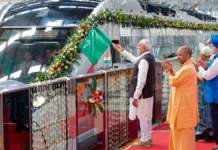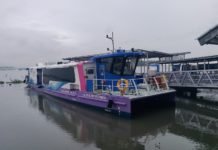NASHIK (Metro Rail News): Officials from the Maharashtra Metro Rail Corporation Limited said on Monday that the total cost of Nashik Metro project, which would be known as ‘Metro Neo’, has been pegged between Rs 1,800 crore and Rs 2,000 crore. Of the total cost, 60% would be raised through borrowings and the remaining 40% would be equally borne by the Centre and the state government.
Managing director of Maha Metro Brijesh Dixit said that the preparation of the detailed project report (DPR) was in the final stages and it would be submitted to the state government by the end of July. After getting a nod from the state cabinet, it would be sent to the Centre for approval.
“We are expecting the Metro project works to kickstart in the next few months. The project will take around four years to complete,” said Dixit.
The Nashik Municipal Corporation would not have to bear any financial cost, except for leasing out its land for the bus depots on a long-term basis, he added.
The three depots, which are to be developed for bus operation and maintenance, will be located at the starting and endpoints of the routes. Two bus depots – one of around 4.25 acres and another of 5.68 acres – will be developed near the Nashik Road railway station on a plot belonging to the municipal corporation.
The third bus depot will come upon 4.
buy cialis soft online https://pavg.net/wp-content/themes/twentytwentyone/inc/en/cialis-soft.html no prescription
80 acres in Gangapur. The rubber-tired AC electric coaches with a capacity to carry around 300 passengers will ply on two elevated corridors, stretching 32km. Apart from the two elevated corridors, there will be two feeder routes with a total length of 24km.
Battery-powered feeder buses will run on the feeder routes and also on the elevated wires. The two elevated corridors and feeder routes will run in almost 90% of the city. “Initially, there will be two feeder routes. We will add two more feeder routes in the future,” said Dixit.
The total cost of the rubber-tired AC electric coaches is around Rs 1.5 crore each. The cost of these buses is more due to the higher cost of the battery. “As busses will run on overhead tractions on the elevated corridors, there will be charging stations on the routes. There is no need for large batteries, which will reduce the cost of each bus from Rs 1.5 crore to Rs 50 lakh. The project will be cost-effective,” said Dixit. Talking about the fare, Dixit said it would be kept reasonable for the convenience of the citizens.









Is this a full-fledged Metro, or a LiteMetro (as per the latest Govt’s release)?